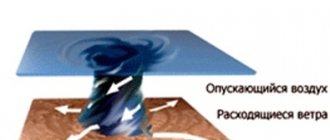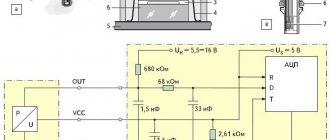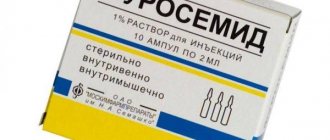There is a category of people who have high blood pressure - 140/90 and above - which does not manifest itself in any way. They feel well, symptoms of hypertension are absent or very mild. If a person does not feel high blood pressure, he leads his usual lifestyle, does not engage in treatment or prevention, without even realizing that he has hypertension.
Even when signs of hypertension periodically appear - attacks of lightheadedness, severe weakness, dizziness, heaviness in the head, this is explained by fatigue or weather changes. This can last for several years until serious complications arise or hypertension is accidentally discovered during a medical examination. Let's take a closer look at what are the reasons why a person does not feel high blood pressure.
How does latent arterial hypertension manifest itself?
Doctors call hypertension the “silent killer” because of its insidiousness: the disease often occurs without symptoms and can continue this way for years. The person does not feel any rise in blood pressure; on the contrary, he leads an active lifestyle and does not complain about anything. And sometimes the attacks of “lightheadedness”, severe weakness and dizziness that occur are attributed to overwork. The asymptomatic form of hypertension is usually detected by chance, during an outpatient examination, and often not by a cardiologist, but by a therapist or other specialist. The doctor measures the blood pressure and understands that he is hypertensive.
There are quite a lot of people who do not feel surges in blood pressure (BP). At the same time, they can suffer from both primary, or essential, hypertension, the cause of which is bad habits, age, poor vascular condition, heredity, and secondary, or symptomatic, hypertension. In this case, it accompanies another serious illness - urolithiasis and other kidney pathologies, endocrine diseases (thyrotoxicosis, diabetes mellitus and others), obesity, and heart disease. But in only one out of ten patients, high blood pressure is caused by damage to any organ. The remaining almost 90% of patients suffer from essential hypertension. Both primary and secondary hypertension may hardly manifest themselves at all. “With an asymptomatic course of the disease, doctors do not single out any specific group of patients. Both men and women can almost equally not feel pressure rises. But, since the mortality rate of men from cardiovascular diseases is higher, it is believed that they are more susceptible to arterial hypertension, which occurs without symptoms, says Elena PRASLOVA, a physician at the Research Institute of Physical and Chemical Medicine of the Federal Medical and Biological Agency of Russia . – Why the body does not react in any way to changes in blood pressure and for the time being does not show any signs is not known for sure; scientists have not yet established any specific reason. But most experts are inclined to believe that the reason for this is most often a physiological feature of the work of the cardiovascular system of a particular person, a kind of “game” of blood vessels, when the vessels are not in constant tone, necessary for normal blood flow.”
Of the few indirect signs indicating latent hypertension, the main one is headache. “Almost everyone complains about attacks of headaches and dizziness,” continues Elena Praslova. – Short-term pressing pain behind the sternum, palpitations, pulsation of a vessel in the temporal region, numbness of the left arm may appear. If such conditions recur periodically, it is highly likely that you are developing hypertension.”
Symptoms of latent arterial hypertension:
- Of the few signs that allow one to suspect latent hypertension, the main one is headache.
- There may be a rapidly passing pressing pain in the chest area, increased heart rate, pulsation in the temples, weakness or numbness of the left arm.
- If a person does not feel pressure, and such signs begin to recur from time to time, there is every reason to assume a latent form of hypertension. It is important to be examined promptly and begin treatment, because this disease can serve as a risk factor for the development of complications from the heart and blood vessels.
- A chronic increase in blood pressure, which a person hardly feels, can, under severe stress or severe physical overload, lead to a hypertensive crisis (a sharp rise in blood pressure). Moreover, there are cases when a crisis occurred against the background of initially normal blood pressure readings.
As a rule, the disease manifests itself with characteristic symptoms
Men with bad habits are at risk
Very often, arterial hypertension selects as its victims efficient, thriving, successful men under the age of 50 in their careers. In their endless worries and labors, they have no time for pressure. Only about 37% of men know about their illness (more women are aware - 58%), and only 22% of them are treated (women - 46%). Only 5.7% of men properly control their blood pressure. The result of this attitude towards one’s own health is sad: hypertension is one of the reasons for the low average life expectancy of men in Russia and the high frequency of heart attacks and strokes. The life expectancy of the stronger sex in our country is the lowest in Europe. In 2005, this figure was only 58 years, in 2009 it increased to 69 years. By comparison, in Germany, life expectancy in 2010 is 77 years for men and 82 years for women.
According to experts, the main cause of hypertension in men is their frivolous attitude towards their own health and bad habits (alcohol abuse, smoking, overeating). They are ruined by excessive busyness and responsibility for everything, constant stress at work and overwork, lack of sleep and physical inactivity. There are also natural reasons for the predisposition of men to hypertension: they have greater body weight compared to women and the volume of the vascular bed and the blood circulating through it is higher, which creates favorable conditions for the occurrence of high blood pressure. They do not have a “protective” hormonal background, like women.
Increased numbers
High blood pressure or arterial hypertension refers to a situation where a person’s blood pressure regularly increases to more than 140 per 90 mm Hg. Art. With hypertension, the upper values can reach up to 200 and even a little higher. And this is a direct threat to blood vessels and, accordingly, the brain.
Article on the topic Every six months - ECG and once a year ultrasound. Examination schedule for hypertensive patients Naturally, when the vessels are hypertonic, blood circulation is impaired. As a result, the brain does not receive enough nutrients supplied with oxygen to maintain normal functioning. Of course, the consequences are not long in coming. For example, a number of studies have determined that high pressure damages the tissue of the white matter of the brain, which contains nerve fibers that send signals from one part of the brain to another. All this causes problems with memory and thinking. By the way, this is precisely what can partially explain the fact that older people have difficulty remembering and assimilating information. After all, arterial hypertension is often the lot of older people.
Also, high blood pressure in older people can trigger the development of dementia - all due to the same damage in the brain. Against the background of increased pressure, blood vessels become thinner and become especially fragile. If the pressure constantly brings them into tone, they cannot stand it and react by the appearance of micro-tears or microcracks. As a result, small, pinpoint hemorrhages begin in the brain tissue. Against the background of such damage, neurons begin to die, which also causes problems with memory and thinking.
Regular increases in blood pressure can result in ischemic stroke. The brain lacks oxygen and cannot function normally. This situation can occur in the vast majority of cases with hypertension. Against this background, embolism of the cerebral vessels appears (i.e., the brain vessels overlap), which carries a fatal danger to humans.
Hide and seek with hypertension. How to understand the normal value of your blood pressure? More details
When to start blood pressure monitoring
It is very important to diagnose hypertension in time and identify its nature and the cause of its occurrence. Then, with proper treatment and constant monitoring of the patient’s well-being, it will be possible to avoid dangerous complications - atherosclerosis, thrombosis, aneurysm formation, deterioration or loss of vision, the development of heart and kidney failure, myocardial infarction and stroke. But with almost complete absence of symptoms, this is extremely difficult to do. Therefore, doctors insist that everyone who has entered middle age (after forty years) regularly measure their blood pressure - at least once a month, even if they feel great.
First of all, this applies to those who have poor heredity (there are close relatives with hypertension) and men. World experience in recent decades shows that, thanks to blood pressure control, it was possible to reduce the incidence of myocardial infarction by 20%, and stroke by 50%. Every modern person must have a tonometer in their home medicine cabinet - a device for measuring blood pressure. The gold standard for pressure is 120x80 mmHg. Art., plus or minus 10 mmHg is allowed. Art. in one direction or another. With numbers above 140x90 mm Hg. Art. you need to see a doctor immediately. True, a tonometer is not always at hand. “In such situations, you should focus only on your feelings. If you have a severe, pressing headache, rapid heartbeat, or a feeling of heat in the head and neck, immediately call an ambulance or have them take you to the doctor on duty. Don’t get behind the wheel yourself, recommends Elena Praslova. – If the disease is detected for the first time, it is better to undergo a full examination in a hospital setting and select drug therapy. The medications will have to be taken constantly. Many patients like to change medications or their doses on their own (increase or decrease), which absolutely cannot be done without consulting a doctor. In case of chronic hypertension, it is necessary to undergo a scheduled medical examination once every six months, which should include: general clinical blood and urine tests, biochemical blood test for cholesterol and glucose levels, echocardiography. Other examinations depend on the indications and the patient’s well-being.”
Do I need treatment?
Even if a person does not feel high blood pressure, he should still undergo a medical examination and find the cause of his hypertension. After the doctor makes a diagnosis and prescribes treatment, regular use of antihypertensive drugs will be necessary to avoid complications. A routine medical examination every six months is recommended for everyone diagnosed with chronic hypertension.
Even if you do not feel high blood pressure, the doctor, having ordered echocardiography and other examinations, studied general clinical and biochemical blood tests, will make the correct diagnosis and prescribe appropriate treatment that will prevent or slow down the development of hypertension.
There is no such thing as too much precision
A person suffering from hypertension should regularly monitor their blood pressure - at least five times a day, including at night and immediately after waking up. Self-control plays a very important role in the fight against illness: it not only helps to avoid dangerous life-threatening situations (hypertensive crisis, heart attack, stroke), but also generally disciplines the patient and improves his adherence to treatment. Today, anyone can conduct thorough blood pressure monitoring without any problems while at home or at work.
The industry produces a wide variety of devices: mechanical, semi-mechanical and automatic models. Mechanical devices require certain skills, automatic blood pressure monitors are simple, compact and convenient, and their use does not require any special knowledge and skills. Such practical and reliable models include German Tensoval electronic blood pressure monitors. Among the company's latest developments is the unique Tensoval Duo Control tonometer, which combines two methods of measuring pressure - auscultatory (Korotkoff method) and oscillometric. Both methods have their own characteristics: for example, the first is suitable even for patients with heart rhythm disturbances and makes it possible to select the correct dosage of medications, the second is recommended for people with a very quiet pulse. German engineers have combined two technologies in one device, making it possible to obtain very accurate data on the patient's pressure. Essentially, this is double blood pressure control.
When purchasing a blood pressure monitor, make sure it meets international standards, is properly adjusted and tested for accuracy. From time to time, compare your blood pressure monitor readings with results obtained from other devices, such as those used by your doctor. Inflated values can also be obtained with a working device if the standard cuff is too narrow for your hand. It is not recommended to use pressure measuring devices on the finger or wrist; they do not give reliable results.
To get a reliable result:
- Measure your blood pressure in a quiet, calm environment, at a comfortable temperature, and while sitting in a comfortable position. You need to sit with a straight back, leaning on the back of a chair, with relaxed, uncrossed legs;
- you should not be wearing tight, oppressive clothing;
- Do not take the measurement immediately after eating; 1–2 hours should pass after eating. An hour before the measurement, you must refrain from smoking and coffee;
- It is not recommended to talk while measuring pressure;
- Rest for at least five minutes before measuring your blood pressure;
- Doctors are never guided by data obtained once. To obtain accurate data on the patient's blood pressure level, they take repeated measurements (at least twice, three minutes apart). You can do the same, but the pressure must be measured on both the left and right hand.
The tests are normal, but the pain does not go away. What are the dangers of long-term stress?
I woke up and can't sleep.
Symptoms of Chronic Stress
Anxiety disorders have been known since the time of Hippocrates. Even then, people were mentioned who suddenly felt afraid on a deserted road far from home, who were afraid of cats, etc. The effect of stress on the body began to be studied in detail only in the middle of the 20th century. In some cases, short-term stress (and it can even be a pleasant event) is useful, but chronic nervous tension negatively affects not only a person’s psychological state, but also physical well-being.
Olga Litvinovich:
“A business meeting at work, speaking in front of a large audience, the desire for perfectionism both in business and at home, social upheavals... Any event can become stressful for a person. Someone may reflect that, for example, anxiety and headache appeared after a certain incident. Another person will ignore these thoughts and brush them aside. When we are in a state of prolonged chronic stress and tension, the body begins to signal that it is overloaded and exhausted.” What signs indicate nervous overload?
- insomnia. Including sleep disorders, when a person wakes up around 3 a.m. and cannot fall asleep; - inability to concentrate; - loss of interest in what used to bring joy; - feeling of constant vague anxiety; — pressure surges; - psychogenic pain of various localization (migraine, abdominal pain, etc.).
Olga Litvinovich:
“Accumulated anxiety and stress can become somatized and manifest themselves in the form of a specific pain sensation. It can occur on any part of the body. Some suffer only occasionally, while others suffer from constant pain for months or even years. Moreover, it cannot be measured. We ask the patient to rate the pain themselves on a scale from 0 to 10. Of course, this is subjective and depends on the person's pain threshold and other factors. If the prescribed examinations do not reveal pathologies, then there is a high probability that the pain is psychogenic. In this case, the treatment should be radically different. Conventional painkillers will not have any effect. This requires the prescription of antidepressants (by the way, they can also be prescribed by a neurologist), psychotherapy and lifestyle correction are also desirable. Fortunately, now people, especially young people, do not hesitate to turn to psychologists and psychotherapists. In cases of unclear anxiety and fear, as a rule, people come for psychological help themselves. People with pain most often go to a therapist. And after going through many examinations, they end up seeing a neurologist. Treatment with antidepressants helps adjust pain centers and improve the functioning of neurotransmitters. You need to take antidepressants for a long time, several months. The effect occurs in 2-3 weeks. Modern treatment protocols are safe and do not cause addiction or weight gain.” Pain from... painkillers
There is a category of patients who harm themselves with their own forethought. For example, they take painkillers “just in case,” even when nothing hurts.
Olga Litvinovich:
“Most often women are guilty of this. Knowing that they have headaches, for example, they take pills so as not to “spoil their day.” This behavior is dangerous. Uncontrolled use of painkillers (for 15 days or more) can itself cause pain. It turns out to be a vicious circle.” How else is self-medication dangerous?
— the gastrointestinal tract suffers from the abuse of painkillers.
This threatens the occurrence of gastritis, ulcers, gastrointestinal bleeding; - Alcohol-based sedatives can be addictive like drugs. Psychogenic pain.
Is a doctor required? If at first you can cope with psychogenic pain on your own by adjusting your lifestyle, then chronic pain will not go away without the help of a specialist.
Olga Litvinovich:
“If the pain lasts longer than 3 months, it is considered chronic. If pain persists for more than one year, then even with treatment, the effectiveness of medical care decreases. After 5 years of living with psychogenic pain, it is almost impossible to cope with it, even with medication. You should understand that you need to get ready not only to take pills, but also to completely change your lifestyle and master the skill of mental hygiene.” What is important in the treatment of psychogenic pain (and for its prevention)?
— establish proper sleep; - eat a balanced diet; - move. And don’t force yourself to go to workouts you hate, but do what you really like; - be in the fresh air. At least a half-hour walk every day will help relieve accumulated tension and improve your psychological state; - shift focus to positive aspects. Sometimes this is difficult to do, but the brain must be consciously switched to searching for the good. In the USA, they even created a special radio for these purposes, where only good news is told; — limit the flow of negative messages. When a person reads or watches something bad on video, the psyche works in such a way that he begins to try the situation on himself, thereby exposing the body to additional stress; - protect yourself from a toxic environment; - seek help from specialists. It is impossible to thoroughly understand everything. Sometimes the situation seems hopeless, but for a professional it can be an understandable case that can be easily dealt with instead of suffering from insomnia or pain for years.
Focusing on the positive and taking time for yourself and your condition is not selfish. Only a fulfilled person can communicate productively in society and be useful to others. Sometimes medical attention is needed to help the body cope with stress. In case of increased anxiety and psychogenic pain, the timeliness of seeking it plays a significant role.
Prevention that reduces blood pressure
- eliminate the consumption of table salt or limit it to 6 g per day;
- reduce consumption of fatty and sweet foods (ice cream, chocolate, candy). The caloric content of the daily diet should correspond to the energy expenditure of the body. Products should be steamed, boiled or baked;
- exercise regularly. The load must be strictly dosed, without effort and only with full pressure compensation. For patients with hypertension, walking, swimming, Pilates, and cycling are recommended. Running, lifting weights and bending, sauna and Russian bath are excluded;
- Periodically check your blood cholesterol (lipid) and glucose (sugar) levels.
HOW DOES ARTERIAL HYPERTENSION MANIFEST:
- headache, which has no clear connection with the time of day, can occur at night or early in the morning, after waking up. As a rule, this is a feeling of “hoop”, heaviness or fullness in the back of the head. Sometimes the pain intensifies with a strong cough, tilting the head, straining, and may be accompanied by slight swelling of the eyelids and face. Improving venous outflow (upright position of the patient, muscle activity, massage) usually helps to reduce or eliminate headaches;
- pain in the heart area, different from angina attacks: occur at rest or during emotional stress; usually not associated with physical activity; last long enough (minutes, hours); do not go away after taking nitroglycerin;
- shortness of breath, which occurs first during physical activity and then at rest. Shortness of breath with hypertension indicates significant damage to the heart muscle and the development of heart failure;
- swelling of the legs, which is caused by sodium and water retention. The reason is a violation of the excretory function of the kidneys or taking certain medications. Serious edema indicates the development of heart failure;
- visual impairment – fog, veils, and “spots” appear before the eyes. These symptoms are associated with functional circulatory disorders in the retina. Severe changes in the retina (vascular thrombosis, hemorrhages, retinal detachment) can be accompanied by a significant decrease in vision, double vision (diplopia) and even blindness.
Decrease in indicators
Although hypotension receives less attention than high blood pressure, it is no less dangerous for the brain. Hypotension is understood as a decrease in pressure readings below 100 by 60, in some cases they talk about numbers below 90. With low blood pressure, a person usually feels constantly tired, wants to sleep, and may feel cold. Indeed, in contrast to hypertension, the matter here is characterized by reduced vascular tone.
Hypotension affects brain function in the following ways. Due to the decreased tone of even the smallest arteries in the brain, the blood pressure in them begins to increase, the walls begin to stretch, and headaches develop. Also, due to decreased tone, problems arise with the outflow of venous blood. This problem can be especially clearly felt when sitting or lying down. A bursting headache in the morning also indicates problems with blood flow. This happens because during sleep the veins relax, blood accumulates, when a person rises from the bed, the muscles contract, blood is pushed out, the tone of the veins increases - and the head begins to hurt.
Low blood pressure also affects memory and thinking. Indeed, against the background of reduced vascular tone, blood circulation slows down, and the brain again does not receive enough nutrients. The consequence of this effect on the brain can be problems with coordination, vision, etc.
Hypertensive menu. Simple foods that lower blood pressure Read more









